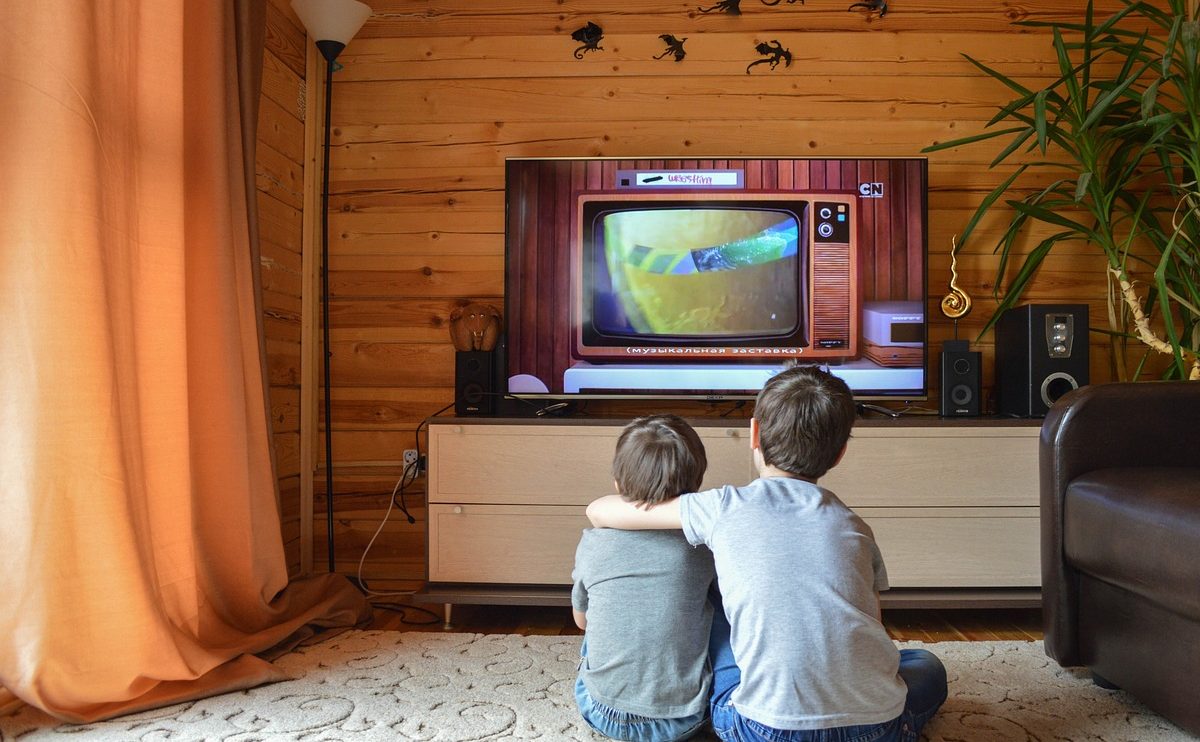Our children spend a lot of time in front of computer screens, televisions, and smartphones (and the truth is, so do we). This viewing may be fun, but is it healthy? Actually, not really. What happens if you look at screens too much, what are the correct viewing rules, how many hours a day are recommended, and what is important to avoid?
Prolonged viewing of screens can cause a variety of problems for both us and our children – some physical such as obesity and diabetes and some mental such as depression.
How do you avoid?
Very simple – limit viewing.
Up to the age of two they don’t watch at all.
And then the viewing time increases gradually, up to a maximum of two hours a day.
And what do we do instead?
sport!
Studies show that the less people watch and play more sports, the less the symptoms of depression among teenagers.
I have a strong memory from my childhood in the 1960s: on warm summer evenings, my mother would pack some sandwiches and take me and my sister to the beach. Although not everything was perfect – the sand got into the clothes, and the fruits had a salty taste, nevertheless it is a sweet memory that paints my childhood in wonderful sunset colors.
My children also have similar memories: on summer evenings we used to go out together, the whole family, to the public park with sandwiches and bicycles and spend time there before taking showers and sleeping. We managed to do this even though we were at the beginning of an exhausting career. We discovered that it compensates us and refreshes us and that in the end, it is the cheapest and most convenient family entertainment we have ever known.
And that wasn’t just our feeling. From a study conducted on more than 8,000 children, it became clear that the greater the family activity, the greater the children’s mental and social health.
It is clear that today’s children also go on trips with their families and don’t just spend time in front of the screens. And yet, from many studies and surveys, it appears that members of the younger generation and their parents currently spend many hours in front of the television, computer, and telephone screens.
In many articles published in recent years, there is also a reference to certain mental damages as a result of being occupied with screens and watching television. And that’s not all, recently there is also a reference to various health damages.
What are the damages caused by watching screens?
Prolonged sitting:
1. Studies show that sitting in front of screens increases the risk of obesity.
2. Prolonged sitting in front of the screen reduces physical activity, and watching is sometimes accompanied by eating fattening and unhealthy food. why is it happening? Because we don’t pay attention to what we eat and how much we eat, and therefore don’t develop satiety either, and thus eat more in front of the screen and contribute to obesity.
Sleep problems:
the use of screens reduces the hours of sleep and leads to difficulty falling asleep. why is it happening? The screens increase arousal and excitement, and it is difficult for a child to fall asleep after prolonged viewing.
Increase in chronic diseases such as blood pressure and diabetes:
from one of the studies conducted by a nutrition and diabetes specialist it emerged that being occupied with screens causes an increase in blood pressure. On top of that, along with the obesity that is created as a result of watching screens, the risk of developing vascular diseases and diabetes also increases.
Exposure to harmful content:
1. The children may be exposed on the Internet to content such as violence, pornography, pedophilia, and various online enticements. A study shows that watching three hours a day of television in 5-year-old children is associated with an increase in behavior problems at age 7.
2. Other content is also not particularly positive, for example, frenzied cartoons, which cause damage to the ability to pay attention, or series that lack an educational message.
Facebook, talkbacks, and whatnot
They are marketed in a sexy and attractive way and give the feeling that “if you are not there, you do not exist”, but these social networks are not always good for us. Reading comments and encountering talkbacks make us feel extreme. This leads on the one hand to exaggeration in expressions of kinship that lose their meaning and on the other hand to emotional harm, insults, isolation, humiliation and depression.
This is how it happens that engaging in the media, which is supposed to make us sociable and communicative, may lower a person’s ability to empathize and increase their loneliness. A study shows that the shorter the exposure time to screens, and the longer the time of physical activity, the fewer the symptoms of depression among teenagers.
But wait a second before you despair of the media! You can use it, but there are rules:
It is important to remember that digital technology is an integral part of our lives, and it is not going to disappear. We just need to know how to deal with it and how to protect ourselves. The accepted recommendations are:
1. Up to the age of two: zero exposure to screens. These years are critical for the development of the soul.
2. 3-7 years old: exposure of half an hour to an hour a day.
3. 8-11 years old: exposure of an hour to an hour and a half a day.
4. 12-15 years old: exposure of no more than an hour and a half a day.
5. From the age of 16 and overexposure of no more than two hours a day.
Think you can’t handle it? Yes, it can be scary and difficult, but we need to pay attention to ourselves because we serve as an example for children. In addition to limiting viewing, we must make sure to use a variety of electronic devices correctly. It is advisable to use headphones for phones, keep the laptop away from your lap, review the content we watch on TV, and monitor the children’s content.
In conclusion, I recommend to the parents of my patients to remember their deep commitment to the relationship with their children. When we come home from work tired, instead of watching TV let’s take the kids for a walk outside. This way we will exercise our body, improve our blood pressure and heart function, eat less, and at the same time talk with the children (and ourselves…), play with them, breathe fresh air, enjoy the little that is in our environment: a green tree, a bird, sun Sinking, hugging, love – sweet memories for a sweet future.












Add Comment